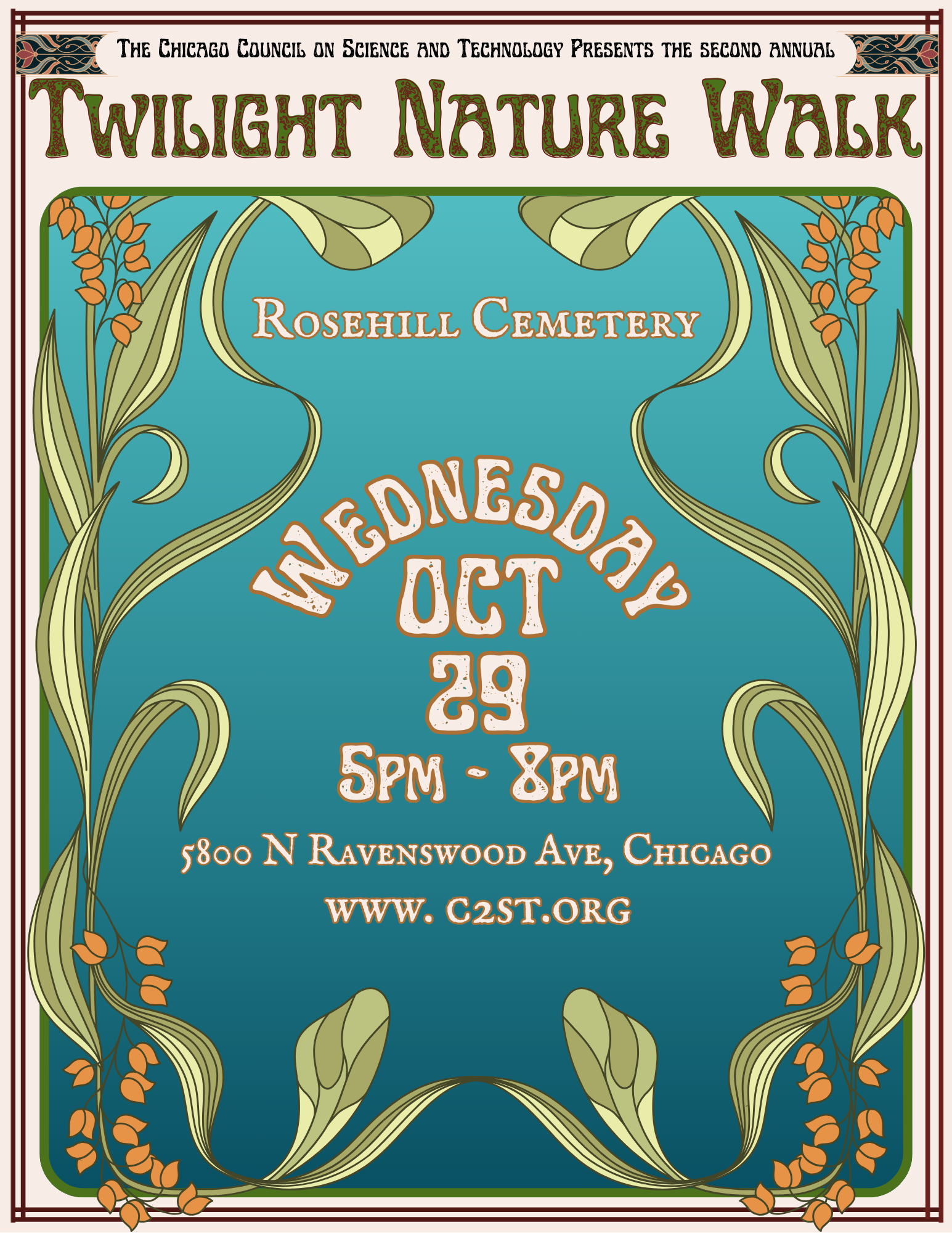
Second Annual Twilight Nature Walk at Rosehill Cemetery
Join the Chicago Council on Science and Technology on Wednesday, October 29th, from 5:00 PM to 8:00 PM for the second annual Twilight Nature Fest at Rosehill Cemetery, an evening of nature exploration under the autumn twilight.
Come learn about the diverse plants and wildlife that call this space home and discover how ecosystems adapt and flourish amidst city life. This special event will feature guided nighttime walks led by experts from the Illinois Audubon Society, Insect Asylum, West Ridge Nature Park Advisory Council, and the Chicago Mushroom Club, offering a unique opportunity to explore the wildlife and ecosystems of this historic cemetery after dark. Some walks will be available for a small fee due to the limited amount of spots available. Or do a self-guided tour through the many stations of exploration set up near the entrance and the interesting graves and points of history throughout the grounds, for free!
Get up close to owls, hawks, and falcons during a live meet-and-greet session with the Northern Illinois Raptor Rehab, or stop by the UV mushroom table, where Chicago Mushrooms will demonstrate the glowing effects of UV-reactive fungi. Explore hands-on activity and education tables throughout the event, hosted partners include the Peggy Notebaert Nature Museum and West Ridge Nature Park.
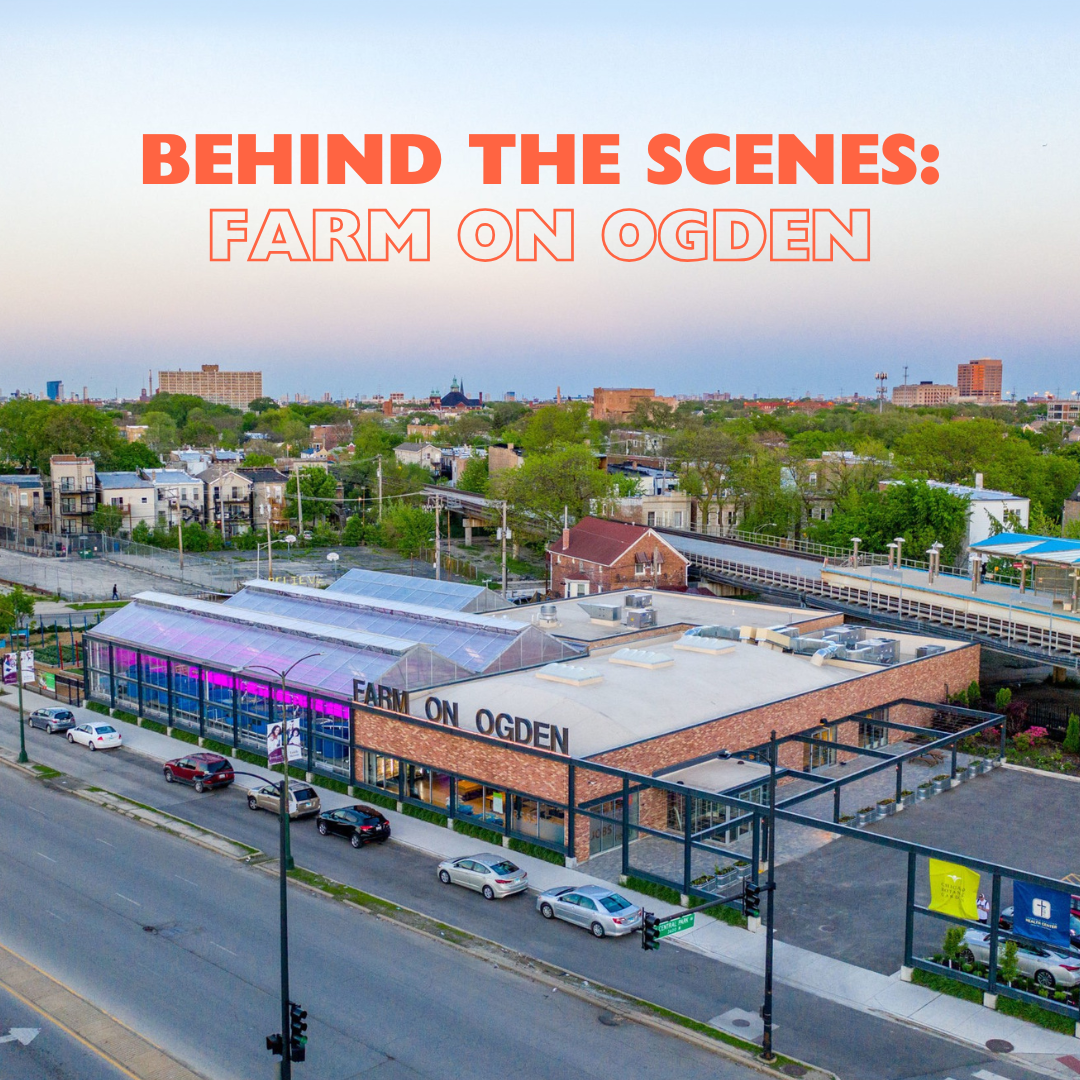
This event is sold out. The Farm on Ogden does have an open market and holds tours. Check out their website for more details.
Join the Chicago Council on Science and Technology and the Chicago Architecture Center for a special behind-the-scenes visit to the Farm on Ogden and learn about urban agriculture in Chicago.
Continue reading “Behind the Scenes: Farm on Ogden”
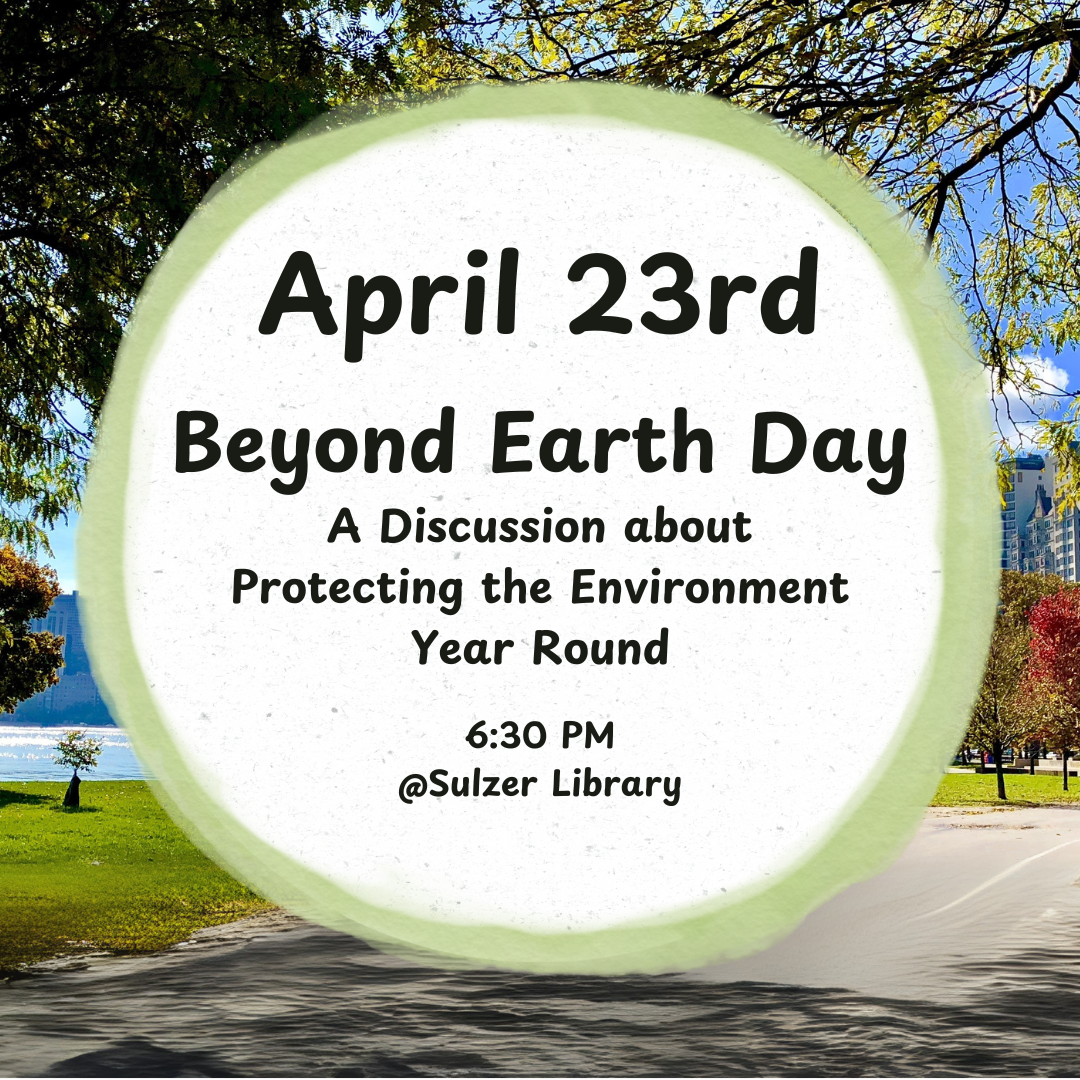
Join us for an evening of conversation and networking with experts who work to keep our planet healthy every day. Doors open at 6:00 pm for networking with a panel discussion and Q&A to start at 6:30 pm. Discover conservation research being done in and around Chicago and find out what you can do to protect the Earth beyond celebrating Earth Day.

Join AWIS, the Chicago Council on Science and Technology, Chientist, ChiTownBio, and the Illinois Science Council for an evening of networking, socializing, and science.
Featuring a talk by Marilene Pavan about using biology to remove fossil fuels from manufacturing and create a more circular economy. Doors at Half Sour will open at 6:00 with the talk kicking off at 6:30. Food and drink will be available for purchase.
Registration is not required but is appreciated.
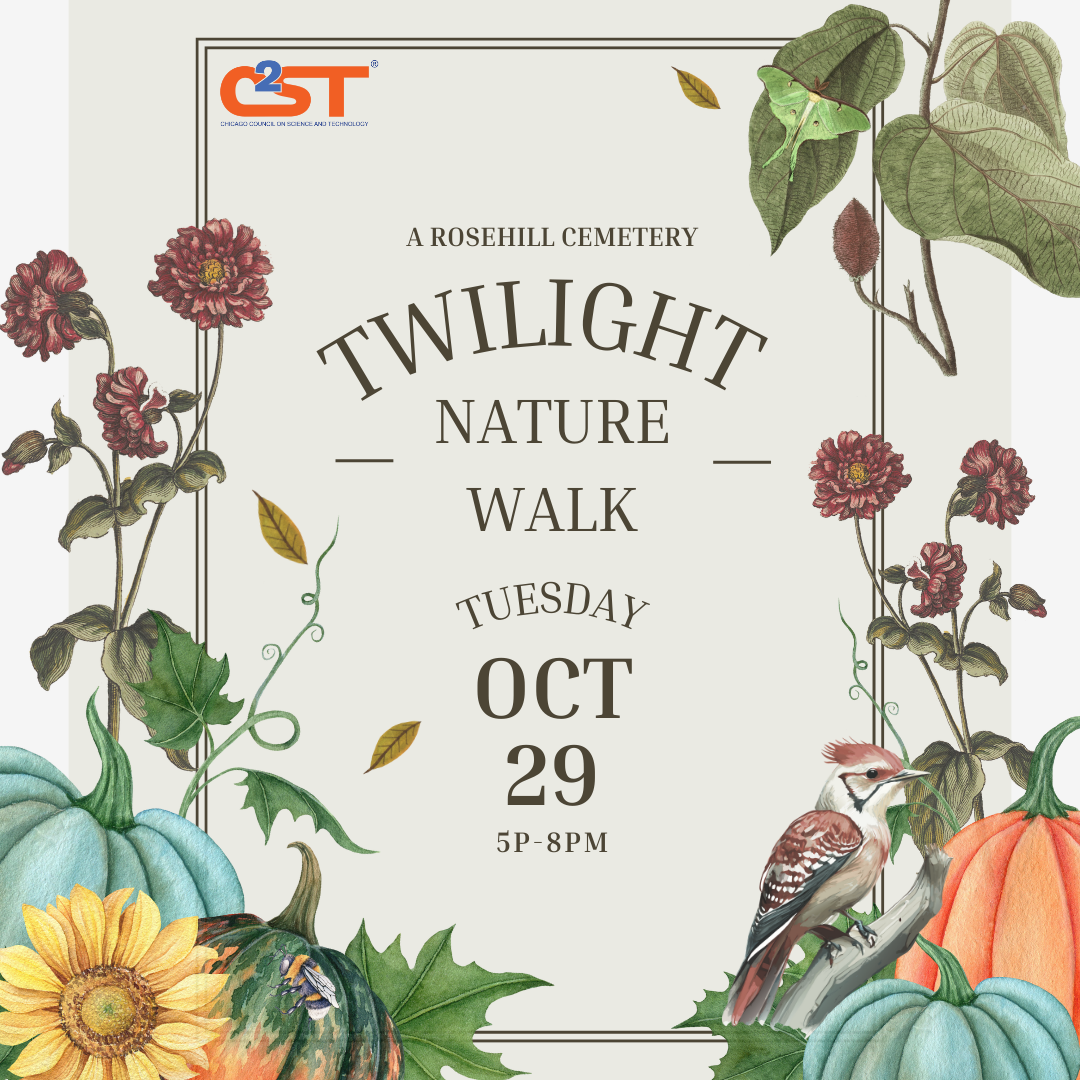
Join the Chicago Council on Science and Technology on Tuesday, October 29th, from 5:00 PM to 8:00 PM for Twilight Nature Fest at Rosehill Cemetery, an evening of nature exploration under the autumn twilight. This special event will feature guided nighttime walks led by experts from the Illinois Audubon Society, West Ridge Nature Park Advisory Council, and the Chicago Mushroom Club, offering a unique opportunity to explore the wildlife and ecosystems of this historic cemetery after dark. Come learn about the diverse plants and wildlife that call this space home and discover how ecosystems adapt and flourish amidst city life.
Continue reading “Twilight Nature Walk at Rosehill Cemetery”
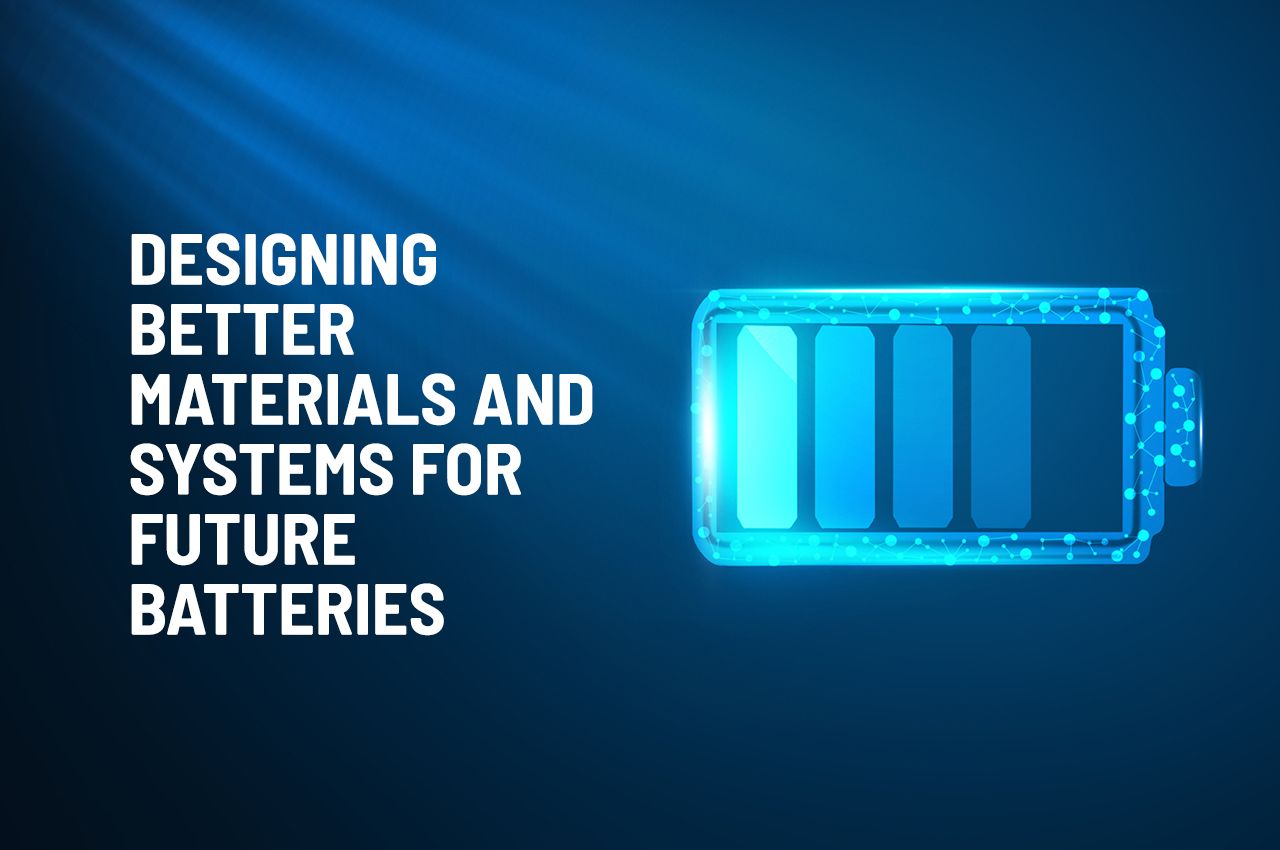
This hybrid program is part of the Illinois Distinguished Lectureship Series. Presented by Chicago Council on Science and Technology, Illinois Tech Wanger Institute for Sustainable Energy Research (WISER), and Armour College of Engineering
High energy, long life rechargeable battery is considered as the key enabling technology for deep de-carbonization. Energy storage in the electrochemical form is attractive because of its high efficiency and fast response time. In this talk, Y. Shirley Meng, Ph.D. will discuss a few new perspectives for energy storage materials including new superionic conductors, reactive metal anodes and their interfacial engineering in a device and system. Meng will also discuss a few future priority research directions for electrochemical energy storage and answers questions from the audience.





